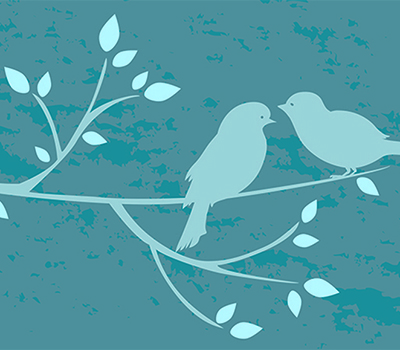The smallest social interaction between two creatures can be very telling. But monitoring and tracking these interactions isn’t always easy.
When your research subjects are birds that stand no more than 30 cm tall, tracking minute social behaviour with the naked eye can be close to impossible. Laurier researcher David J. White is working in a new research paradigm — studying birds in large, semi-natural social environments using a high-tech “social sensor web.”
White studies flocks of birds that live together in large enclosures monitored by automated monitoring systems. Using motion-activated surveillance cameras and audio recording devices, this social sensor web is designed to study how cowbirds, a type of North American songbird, develop into adults in a social environment.

While many labs all over the world are racing to implement these technologies into their research, White’s “smart aviaries” integrate automated individual recognition technology, video tracking and audio recording in a research environment unique to Canada and the world. Recognizing the importance of this novel approach, The Canadian Foundation for Innovation’s John R. Evans Leaders Fund recently granted $59,117 in funding for White’s project, which is titled "The Songbird Project: Placing learning and development into a social context.”
By preserving the flock structure, the context in which learning and development occurs for these birds can be studied. However, it is hard to observe individual bird behaviors in flocks. Therefore high-tech sensors and cameras are required to capture tiny social interactions.
“There is dramatic flexibility in characteristics that were never before considered to be influenced by social learning — aggression, mate choice and birdsong,” said White, an associate professor of psychology. “Young males with no access to adult males fail to develop normal behavior.”
This approach challenges many long-held beliefs in both biology and psychology about how learning evolves. Social complexity has long been considered a primary selection force that has favoured the evolution of intelligence.
White, who has been at Laurier since 2012, studies social development and social evolution, with a focus on the impacts of the social environment.
“Smart aviary” video and audio feeds will be made available online. Thanks to this technology, scientists across Canada, as well as the public, can access the video feeds and watch cowbirds learn in action. For more information, visit White’s research website at sites.google.com/site/whitesocialbehaviourlab.